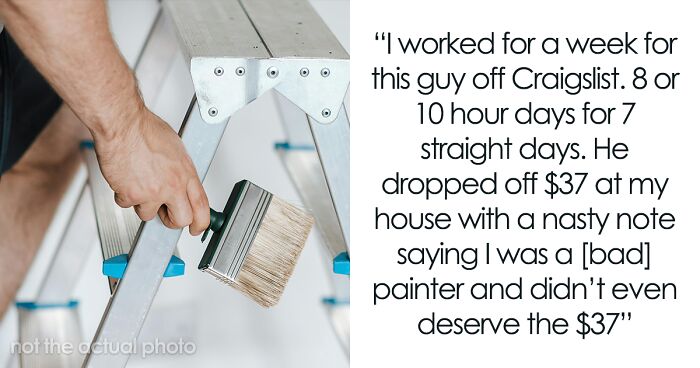
Person Works 7 Days For A Painter And Only Gets Paid $37, Refuses To Let It Go And Seeks Revenge
Gig work has many advantages, including the ability to choose projects that align with your skills and interests and greater control of your schedule.
However, it often comes with various challenges such as a lack of job security, limited access to traditional benefits like health insurance and retirement plans, or, in the case of Reddit user Sloppypantsmama, not getting paid.
Speaking to the platform’s ‘Petty Revenge‘ community, the person recalled a time when they spent a whole week painting for a client they met through Craigslist only to receive a measly $37. Luckily, they found a way to get the last word!
This person did a week-long paint job, but the guy who hired them didn’t want to pay
Image credits: Wahyu Setiawan / unspalsh (not the actual photo)
So they found a creative (and painful) way to get back at him
Image credits: Anete Lusina / pexels (not the actual photo)
Image source: Sloppypantsmama
Gig workers are often left vulnerable to exploitation and financial insecurity
Because workplace laws protect employees and not independent contractors, gig workers still find themselves vulnerable to exploitation similar to the scenario in the Reddit post.
Terri Gerstein, who is the director of the N.Y.U. Wagner Labor Initiative at the Robert F. Wagner Graduate School of Public Service at New York University, said that companies like Uber and Lyft save a ton of money on wages and taxes by avoiding the obligations that other employers must follow: wage-related laws and unemployment, Social Security, and Medicare taxes. As a result, gig workers can find themselves paid sub-minimum wages, or left without compensation when injured or killed on the job.
Another downside is that law-abiding employers face unfair competition with businesses that don’t follow the rules, and critical safety-net programs like unemployment insurance lose badly needed funds.
Image credits: RossHelen / Envato Elements (not the actual photo)
According to Gerstein, if corporations can avoid workplace laws just by hiring workers via an app and giving them a modicum of scheduling flexibility, then, as a rule of thumb, workers are in big trouble.
In New York City, for instance, app-based food delivery workers had to get a law passed just to have access to the bathroom at restaurants where they pick up an order.
Furthermore, many gig companies require workers to sign arbitration provisions that block them from filing lawsuits or bringing class actions, leaving government enforcement as the only realistic option.
So they need government-set ground rules to make sure they are properly treated. Or else they might resort to (petty) revenge, and nobody will benefit from it.
The story has received a variety of colorful reactions
Explore more of these tags
Always get half of money for the job upfront. The customer buys the paint. And pays for paint when they dislike the one that they chose the first time and extra money for painting it the first time and having to redo it. Not petty, just business.
Always get half of money for the job upfront. The customer buys the paint. And pays for paint when they dislike the one that they chose the first time and extra money for painting it the first time and having to redo it. Not petty, just business.

 Dark Mode
Dark Mode 

 No fees, cancel anytime
No fees, cancel anytime 







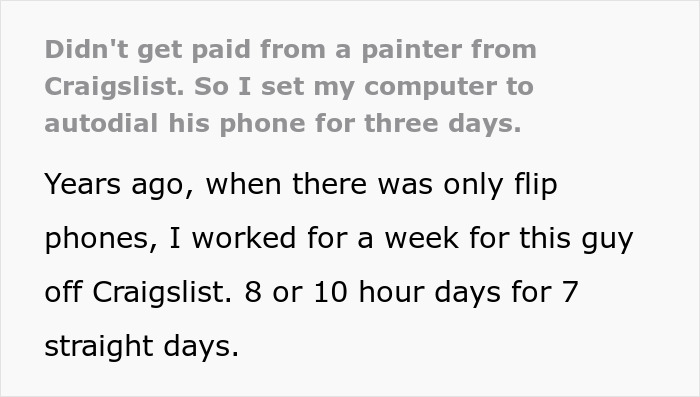






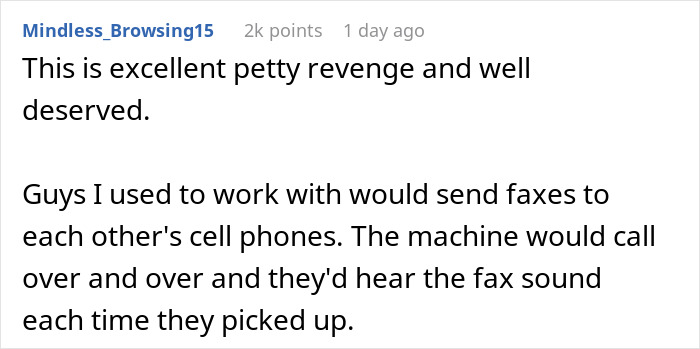
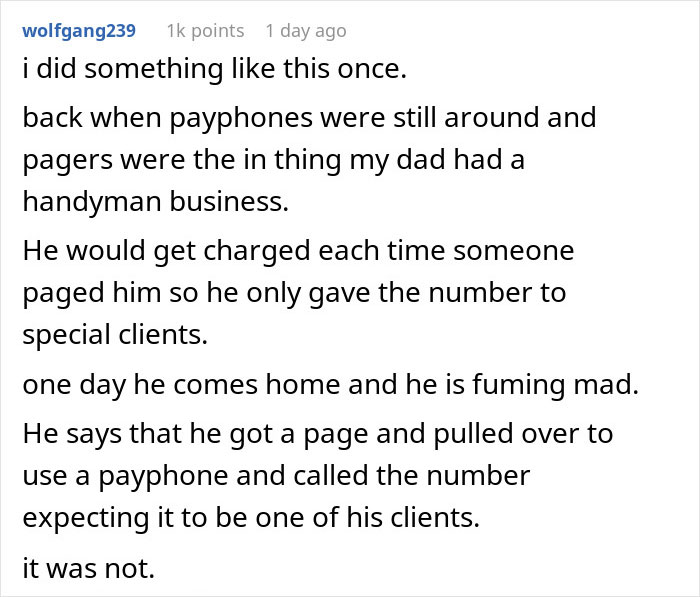



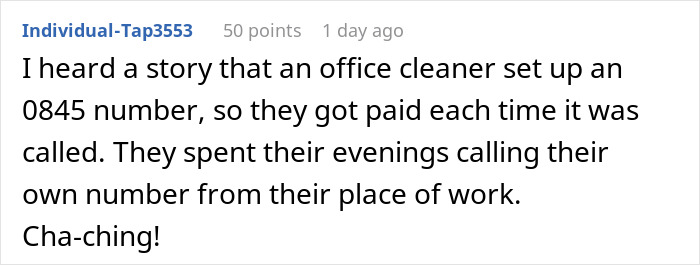
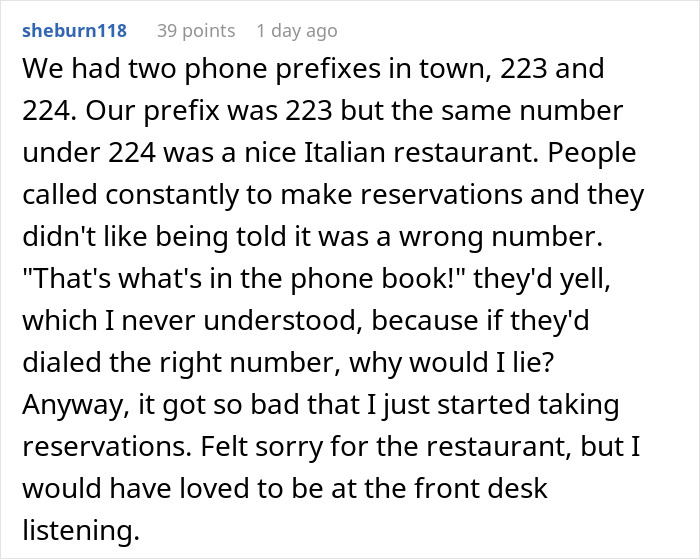

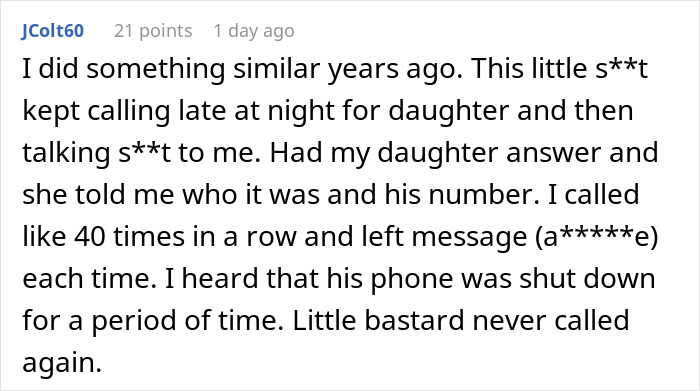


















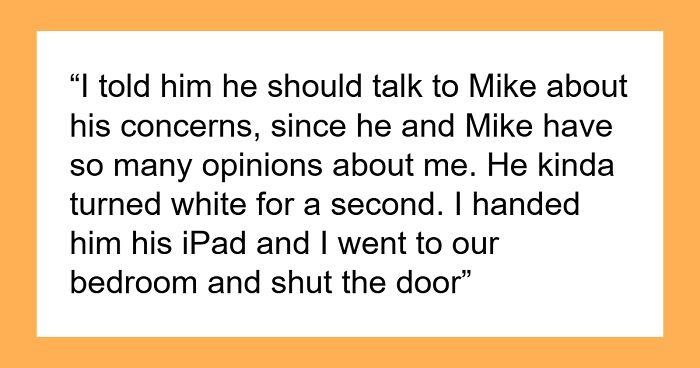































47
2